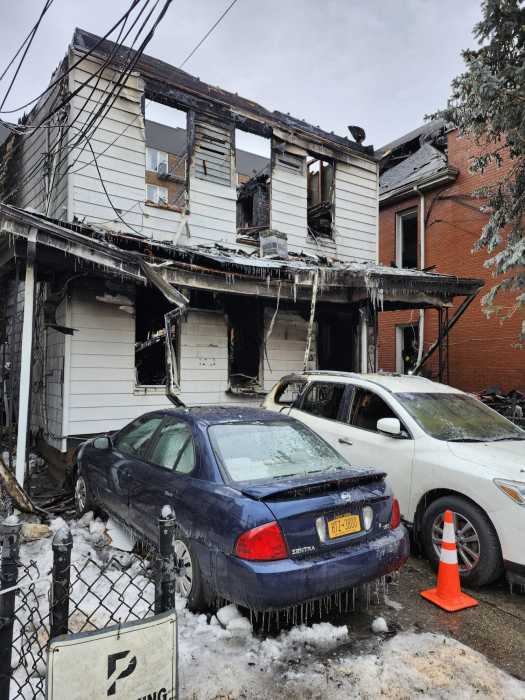By Sarina Trangle
The police chokehold that took the life of a Staten Island man suspected of illegally selling loose cigarettes last month has gripped Queens’ leaders.
Following the medical examiner’s classification of Eric Garner’s death as a homicide caused by the chokehold, a maneuver forbidden by the NYPD, several elected officials in the borough called for the city to examine its policing policies and the NYPD’s relationship with minority communities.
City Councilman Ruben Wills (D-Jamaica) said he thought federal prosecutors should be brought in to investigate allegations of police misconduct to ensure those deciding whether charges should be brought against police are approaching it without bias.
“I do not believe officers get dressed and go to work with the intent to take someone’s life, but our community has been inundated with officers, who sometimes have a racist tilt … too often the result of this is death or assault or an abuse of power,” Wills said, noting that communities of color see more deadly and damaging clashes with police.
Garner’s death was thrust into the city’s spotlight after a man video taped officers stopping him near the Staten Island Ferry terminal July 17 on suspicion of selling untaxed cigarettes. The tape showed an officer throwing his arm around Garner’s neck and throwing Garner to the ground with assistance from his colleagues.
Garner is heard saying he cannot breath as police and paramedics stand around him.
The medical examiner’s office announced last Friday that his death was classified as a homicide caused by compression of neck and chest and the prone positioning of his body during police restraint.
His asthma, obesity and cardiovascular disease were listed as contributing factors, officials said.
The Staten Island district attorney’s office is investigating the incident and whether any charges should be brought against police officers.
Meanwhile, the police and sergeants benevolent associations defended the officer, saying he was not using the chokehold, but struggling with a man resisting arrest. The unions blamed policy changes restricting the use of stop-and-frisk for more people resisting arrest.
Wills said he believed Garner’s death shows why it makes sense for the city to equip officers with body cameras to record their interactions with the public.
Councilman I. Daneek Miller (D-St. Albans) and Leroy Comrie, a special assistant to the borough president, said the incident called for a close examination of police policies and communication between precincts and their commands.
“It was a terrible injustice and I would hope that all sides work to ensure that this never happens again,” Comrie said. “There is no one answer. We all have to work together.”
And Rory Lancman (D-Fresh Meadows), a member of the Council’s Public Safety Committee, said it planned to have a comprehensive hearing on Garner’s death, touching on NYPD training pertaining to restraining those resisting arrest; officer discretion in low-level, quality of life arrests; adding body cameras’ to police uniforms; and other issues.
“The tragedy is sparking a legislative inquiry into every aspect of policing,” Lancman said.
Reach reporter Sarina Trangle at 718-260-4546 or by e-mail at strangle@cnglocal.com.

































